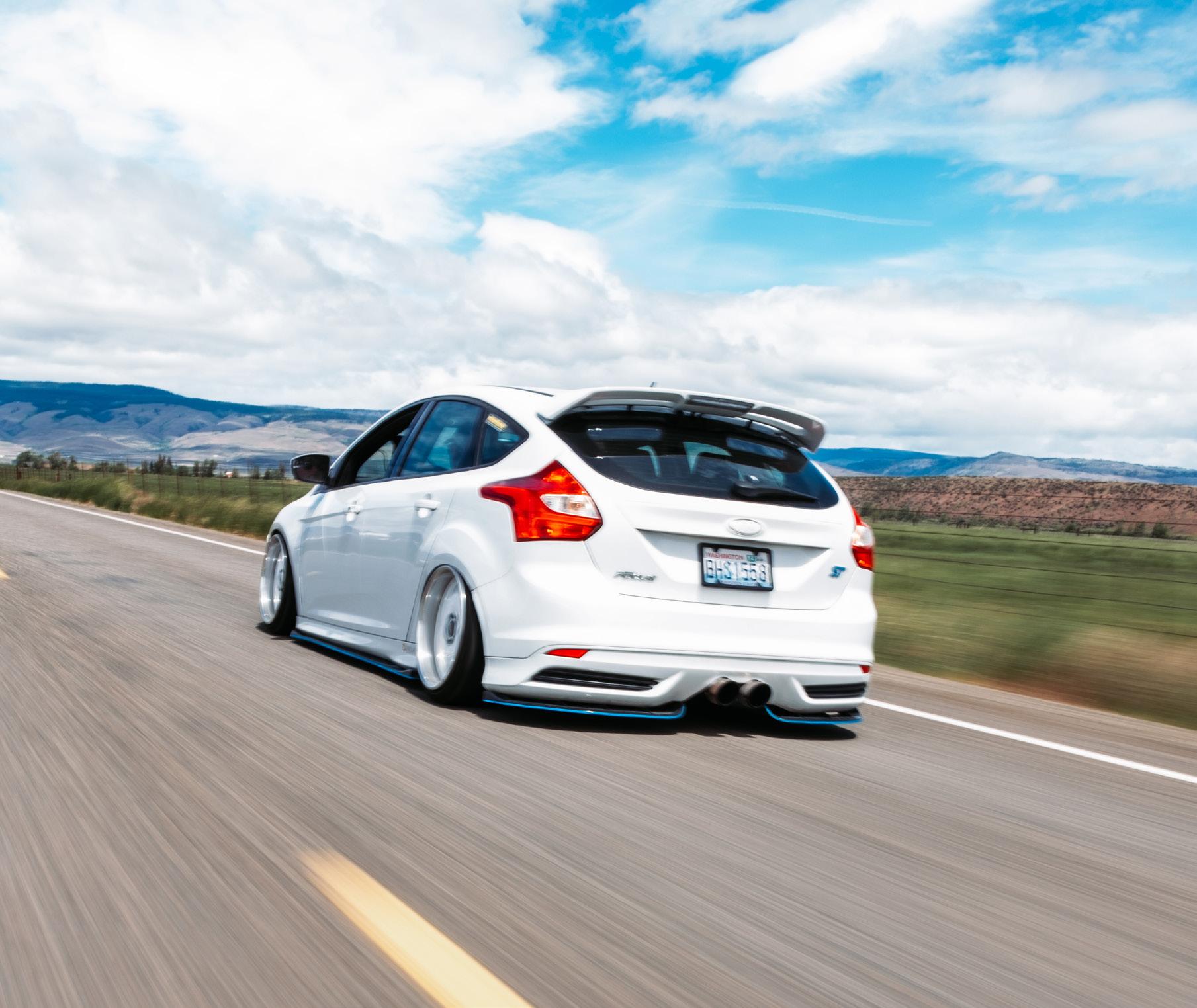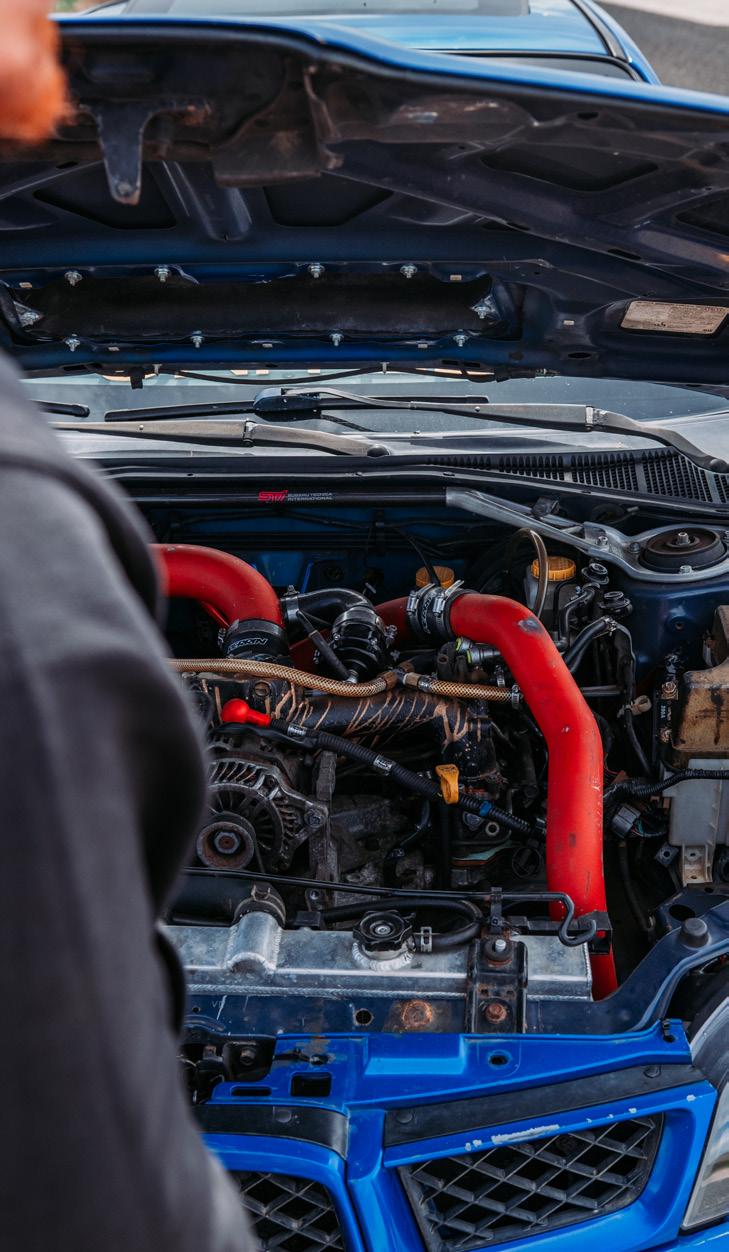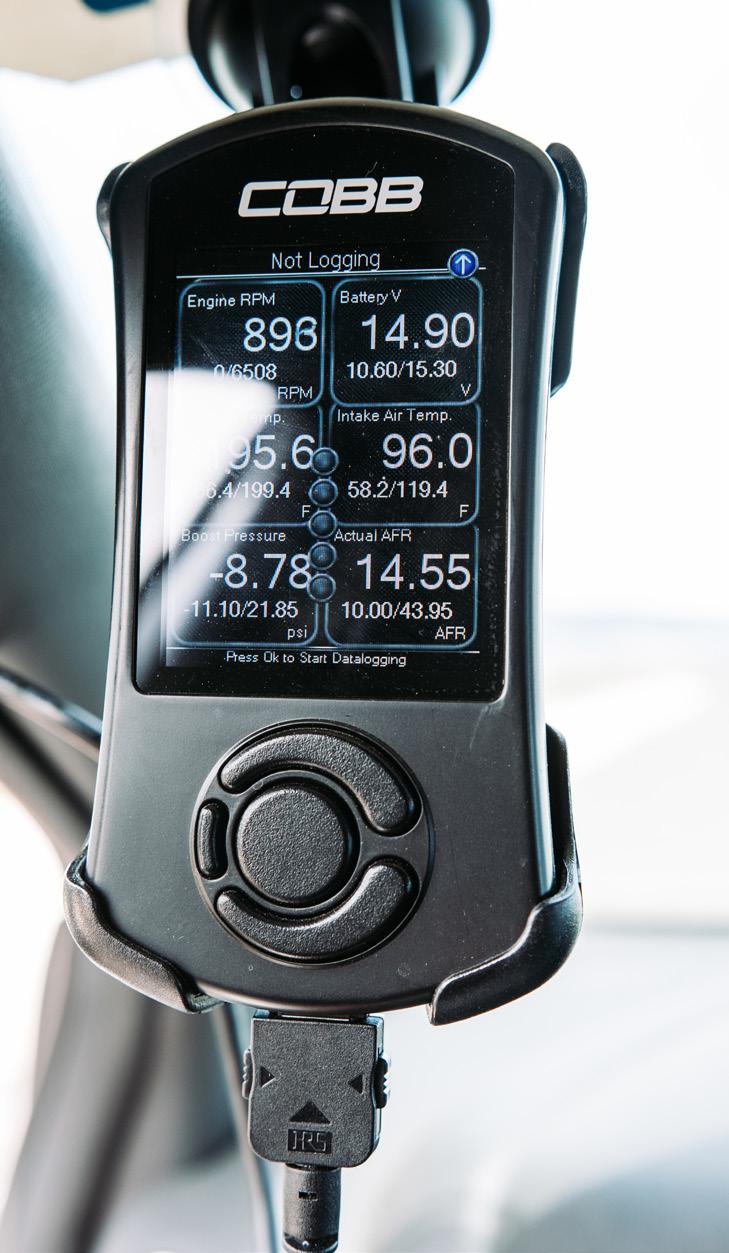
4 minute read
Start Your Engine: It’s Time to Hit the Streets
Start Your Engine:
It’s Time to Hit the Streets
Advertisement
Story by Derek Harper | Photos by Zahn Schultz | Design by William Yi
The sun gleams on the hood as a warm breeze sweeps through the open windows. You begin to rev your engine as an empty highway awaits you. Your heart beats and your pulse quickens as you get ready to hit the street and begin racing.
While street racing has become alluring to many groups, there are some cautions to be aware of before deciding to hit the road.
The Appeal
The changing seasons provide more time for people to be outside and engaging in activities such as street racing. But what is the major appeal to an activity that some consider dangerous?
Doug Rizo, avid street racer from New York City, explains, “What drew me to street racing, or racing in general, was just growing up going out to the races with the older kids. Seeing all the cars track-racing is fun, but there’s nothing like the adrenaline rush at the street races when the cops show up and you have to run.”
Also, competition and social acceptance are two other factors that E.C. Mueller, manager at Portland International Raceway (PIR), attributes to being part of the allure.
There are also many forms of media that can influence the way people perceive or become interested in street racing.
“You may like it, but you won’t know what it’s really like unless you live it,” says Doug Hobbs, president and CEO at Evergreen Speedway and High Road Promotions in Monroe, Washington. “Movies, car shows, drift, autocross, car magazines, YouTube and many other platforms plant the seed to push your machine and yourself to the limit sometimes.”
Some also say that there is a possibility of movies such as “Fast & Furious” influencing street racing culture.
“Building a car like they have in the ‘Fast & Furious’ series is part of the inner self striving to be who you are or what you want others to think you are sometimes,” says Hobbs. “Sadly, two of my friends were there from Formula DRIFT the day Paul Walker died. It only takes a split second for something to go wrong.”



The Dangers
Before you hit the streets with your friends, you might want to be aware of some of the possible dangers that come with street racing.
Hobbs explains that he considers street racing to be an issue that will persist in the future. “Rural areas and freeways that are seemingly harmless to do triple digits create a false sense [that] it is okay because ‘I can control my car no matter how fast I go’,” he says.
There is also the possibility of watching others get hurt right before your eyes. Rizo explains he’s seen people lose family members as well as get hurt really badly. He suggests, if people don’t have an official raceway to go to where they can race and enjoy their lifestyle legally, they’ll turn to a more dangerous path on the streets.

Choose Your Vehicle
For many, including Rizo and his friends, street racing is considered a lifestyle. However, it doesn’t necessarily matter what type of vehicle you drive when it comes to street racing.
Rizo says, “I drive a ‘93 Honda Civic swapped with an Integra VTEC engine with a turbocharger on it.” He explains that he has also seen Hondas, Acuras and various American vehicles, but says it all depends on what you prefer.
Hobbs adds that in the 1950s to 1970s drag racing on main streets became part of popular culture. “The old term ‘need for speed’ will probably never go away whether it is electric, fusion, hydrogen, gas or diesel powered vehicles.”
Check out this street racing playlist, curated by the PULSE staff!
Alternatives to Street Racing
Mueller says they have a legal alternative to street racing at PIR, called Late Night Drags where people can enjoy the social and car scene with others interested in racing.
He explains, it costs $35 for one night of unlimited runs which can help a new racer learn the right way to grow their skills and prepare their vehicles.
“Late Night Drags was started at PIR in 2001 in response to street racing and deaths with the collaboration and cooperation of the Portland Police Bureau,” says Mueller. Alternatives such as these events can help prevent the typical dangers of street racing while still providing the social element that many crave.
Whether you choose to join communities of racers or take to the streets, be sure to check in to weigh the dangers with the benefits. Hobbs finalizes, “The human spirit nearly always has a bit of a rebel or dark side so to speak in most of us for something. This does not make people bad.”












